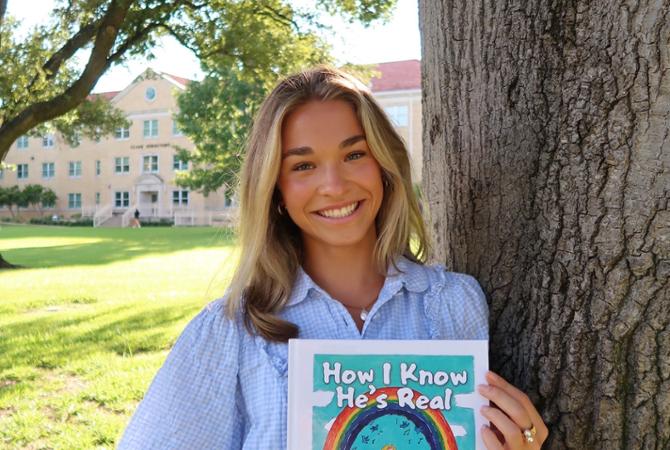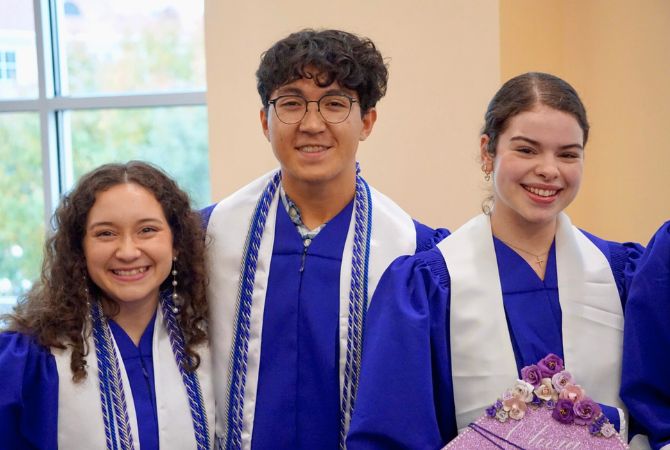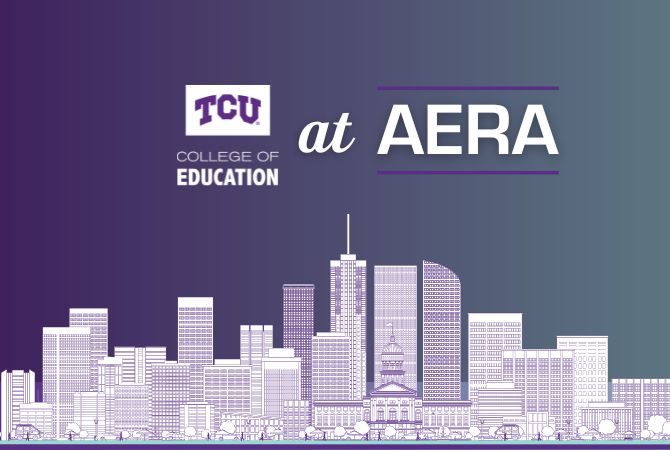Young children learn through playing. Michelle Bauml, associate professor of early childhood education, explained that play is beneficial for children’s social-emotional, physical and cognitive development.
Teacher education majors at TCU learn the benefits of different types of play and how to create an environment that supports student’s development through play and creative thinking. Bauml wants her students to be good decision-makers in choosing quality materials for their future classrooms, whether it’s on the playground or in a math lesson.
Debbie Rhea, professor of kinesiology and founder of the LiiNK Project (Let’s Inspire Innovation ‘N Kids), speaks to Bauml’s “Creative Thinking: Play” classes about the importance of unstructured outdoor play, also called recess. The LiiNK Project does work surrounding improved brain development as a result of physical activity and outdoor exposure throughout the day.
 “Research shows that when children have access to this form of play (self-directed
and self-controlled in a safe environment), they are much more focused in the classroom,
need less effort to listen, are able to retain information more quickly and show a
significant decrease in discipline problems on a daily basis,” said Rhea.
“Research shows that when children have access to this form of play (self-directed
and self-controlled in a safe environment), they are much more focused in the classroom,
need less effort to listen, are able to retain information more quickly and show a
significant decrease in discipline problems on a daily basis,” said Rhea.
Rhea explained that she and Bauml collaborated to establish the Recess Kit Project, which benefits both TCU students and LiiNK Project schools. The kits are designed for indoor recess, when students can’t go outside due to inclement weather.
Bauml’s students work together to propose indoor recess items that can fit into a large plastic bin. They factor in cost, durability, age-appropriateness and the way the materials promote creative thinking, expression and movement. The project is typically supported by donations, which enables the creation of eight recess kits created across two classes.
Once the items arrive, students assemble the kits and take them to the on-campus laboratory schools, KinderFrogs and Starpoint, for testing. TCU students observe lab school students playing with the kit and do a class debrief, noting what worked, didn’t work and unanticipated outcomes.
Early childhood education major Morgan Livingston said Bauml’s class taught her that young kids learn in a richer way when they are able to use toys in whatever ways make sense to them. Her kit included buckets that were meant to be walked or jumped on like steppingstones.
The students were apprehensive about engaging with the toy, so Livingston tapped on the buckets to get them to interact. This turned the buckets into multicolored bongos for everyone to make sounds on.
“What I chose to do to get the kids to interact with the toys influenced how they saw the buckets’ intended purposes, which couldn’t be further from the instructions,” said Livingston.
“I’m so thankful that I got to see firsthand why students should be at the center of their own learning,” she said.
The final step in the Recess Kit process is distributing them to local LiiNK schools, many of which serve underrepresented student populations due to limited funding. Over 3,000 school children have been impacted by the Recess Kit project.
For more information on supporting play through our Recess Kit Projects, please contact Marc Mitrano at m.mitrano@tcu.edu.


